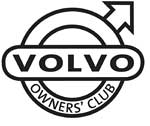

Photographs can be seen in our Volvo Gallery
Volvo on the rise in the diesel segments – new generation promotes increased competitiveness.
5 May 2005
- The diesel share in Volvo Cars' European sales up from 20 to more than 50 percent
- New engine generation promotes increased competitiveness in every segment
- Annual target is 85,000 new five-cylinder diesel-powered cars in Europe
- Production start in mid-May 2005
In 2004, petrol-powered cars were overtaken by diesel cars on Europe's roads – at least in the sales statistics. Exactly 110 years after Rudolf Diesel launched his groundbreaking invention, the proportion of diesel-powered cars in Europe exceeded 50 percent for the first time ever. Volvo Cars is now one of the most fast-growing actors on the diesel market. When production of the first in-house developed diesel engine started in 2001, the proportion of diesel engines in the company's European sales figures was just over 20 percent. Today, just four years later, Volvo has passed the 50 percent mark. The next step is to further boost the competitiveness with the introduction of a new, more powerful and cleaner generation of five-cylinder turbodiesel engines. Volvo Cars' five-cylinder diesel range now encompasses three engines, with power outputs spanning from 126 to 185 horsepower and with torque between 300 and 400 Newton metres (Nm). "We cover most customers' requirements by increasing the number of horsepower. Only 16 percent of buyers want a diesel engine with more than 185 hp," says Gerry Keaney, Senior Vice President Sales, Marketing and Customer Service at Volvo Cars.
Consistent increase
The huge increase in the proportion of diesel cars in Europe has taken place since 1998, when common-rail technology was launched on a broad front. This made diesel a serious competitor to petrol power when it comes to driveability and noise levels. In addition, the low fuel consumption meant that legislators in increasing numbers of countries favoured diesel power through tax incentives.
"Highly effective particulate filters, one of the cornerstones in our system upgrade, give the diesel engine additional environmental benefits. What is more, diesel engines are becoming increasingly dynamic and more comfortable. That is why the diesel engine's market share is set to increase still further in Europe. It is not unlikely for 70 percent of all new cars in Europe to be powered by diesel in 2010," says Gerry Keaney.
Considerable variations
Diesel's market share varies considerably between different markets. The market is topped by Austria, Belgium, France and Luxemburg, who already belong to the "70-percent club".
Spain, Italy, Portugal and Germany are all between 60 and 40 percent. Britain is on the upswing and, despite a high price for diesel fuel at the pumps, has crossed the 30 percent mark, while the proportion of diesel-powered cars is still below 10 percent in Greece and Sweden.
The diesel share is biggest in the large-car segments, where the Volvo V70, Volvo XC70 and Volvo XC90 compete with other makes. In the premium segment for SUVs, diesel accounts for more than 80 percent, while the segment with the Volvo V70 and Volvo XC70 have a diesel share above 60 percent.
The new generation gives high market coverage
The new generation of in-house manufactured five-cylinder diesel engines will initially be available in the Volvo S60, Volvo V70, Volvo XC70 and Volvo XC90.
"With our most powerful turbodiesel has been spiced up with another 22 horsepower, rising from 163 to 185, we become even more competitive in all the segments. The Volvo S60 becomes far sportier. The Volvo V70 and XC70 also get a huge boost in power and for the XC90, diesel becomes a far more attractive choice," explains Gerry Keaney.
When it comes to the Volvo S60 most of the diesel buyers in the segment want an engine between 130 and 170 horsepower. In the segment with Volvo V70 and Volvo XC70 last year's diesel volume peaked between 170 and 179 horsepower. The Volvo XC90 also covers the most popular diesel choices, between 160 and 169 horsepower.
Increased volumes
The first generation of the in-house developed diesel engine has been fitted in 305,000 Volvo cars since the introduction in June 2001.
Volvo's target for the new generation diesel engines is to double that figure during the next four years, reaching more than 600,000 units.
In 2006, Volvo expects to sell 85,000 units of the new five-cylinder diesels. Production of the new generation of turbodiesels starts at Volvo Cars engine factory in Skovde, Sweden in mid-May. Initially, the focus is on building cars with manual gearboxes. The production of cars with automatic transmission starts in early October 2005.
Legal | Privacy | Contact Us | Search | Site Map
Volvo Owners' Club Limited® 1962-2025

